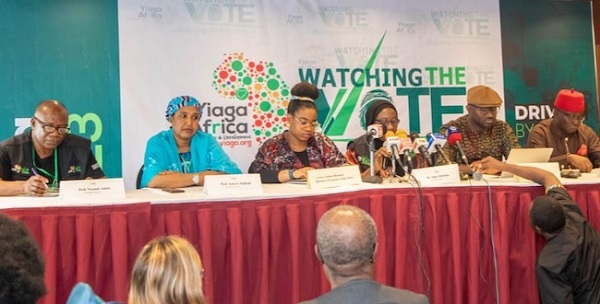
A civil society organisation (CSO), Yiaga Africa, has recommended legal timelines for testing new electoral technologies in Nigeria’s electoral legal framework. The CSO made this suggestion in Abuja on Wednesday in its post-election statement signed by its board chair, Dr. Aisha Abdullahi, and the executive director of Yiaga Africa, Mr. Samson Itodo.
According to the group, the testing timeline would equip the commission to use its adopted technology more effectively during elections. It further stated that for the February 25, 2023, presidential election, Yiaga Africa employed the Parallel Vote Tabulation (PVT) methodology, deploying 3,014 observers in pairs to a representative random sample of 1,507 polling units, 822 mobile observers in all 774 local government areas (LGAs), 36 states, and the FCT.
This deployment strategy enabled Yiaga Africa to provide timely and accurate information on the election day process commencing from the set-up, voter accreditation, voting, counting, and to independently assess the official results of the presidential election as announced by INEC. However, the organisation’s findings on the election included the late arrival of INEC officials at the polling unit, challenges with locating polling units, insufficient election materials, and functionality of the Bimodal Voter Accreditation System (BVAS), uploading, and transmission of results, among others.
Yiaga Africa expressed concerns about the delay in uploading polling unit results for the presidential election on the INEC Election Results Viewing Portal (IReV), which cast doubts on the credibility of the results management process, resulting in broken public trust in electoral technology. The group also condemned the cases of violence and disruption of the voting and results collation process by thugs and hoodlums, especially the violence targeted at National Youth Service Corps (NYSC) members and INEC staff.
The creation of additional polling units was a positive and long-needed step by INEC; however, the implementation failed to address overcrowding. As a result, there were polling units with fewer than 10 registered voters and others with over 10,000. Some voters who were migrated to new polling units experienced difficulties locating their respective polling units.
Yiaga Africa recommended a comprehensive audit and investigation to unravel the factors that led to the delay in the upload of election results on the online portal as critical. It also advised that persons found complicit in sabotaging the critical aspect of the election should be sanctioned. The CSO further urged INEC to provide clarifications on its interpretation of key aspects of the legal framework on issues like results collation and transmission processes. There should also be clarity on the threshold for determining the winner in an election and the commission’s power to review election results declared under duress or in contravention of the Electoral Act, INEC Guidelines and Manual. Lastly, Yiaga Africa urged INEC to sustain the uploads of polling unit results from EC 8A on its IReV portal. (NAN)

